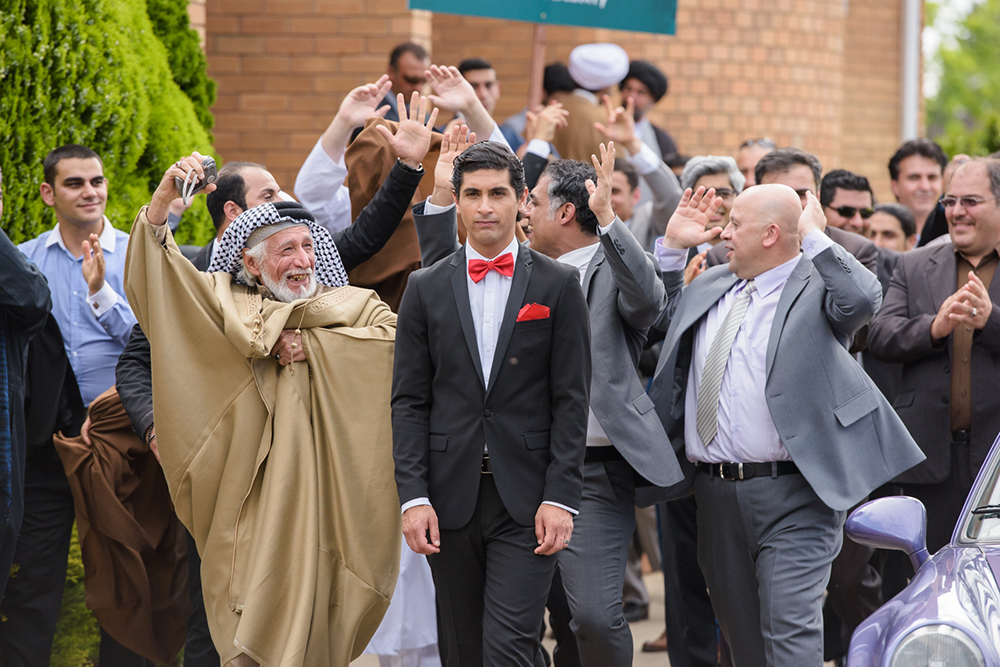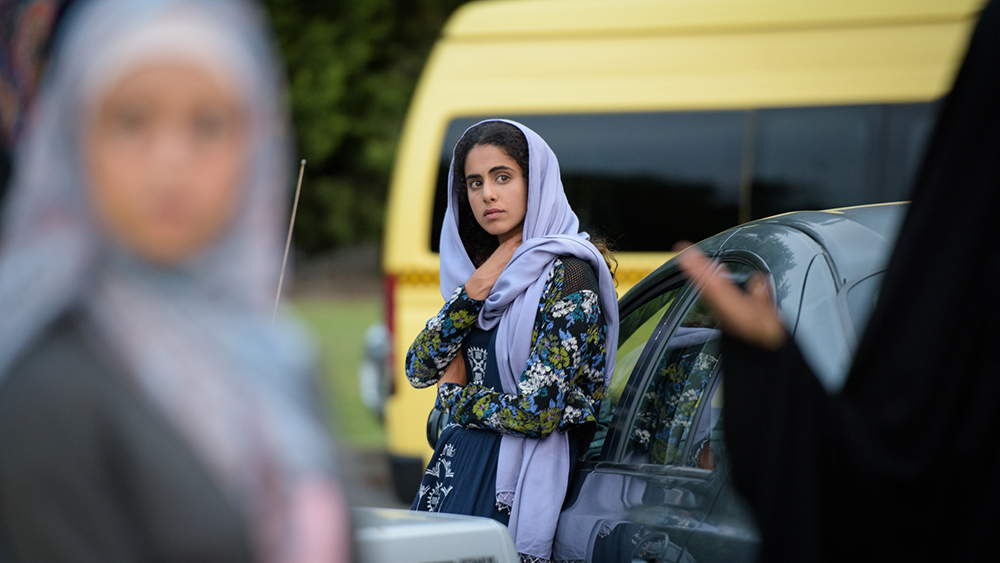Ali’s Wedding: a long time coming
The star of Ali’s Wedding, Osamah Sami, and producer Sheila Jayadev talk about how this true story is connecting with Australians in a way that transcends religion or skin colour.
 Ali's Wedding
Ali's Wedding
For a long time, actor/writer/comedian Osamah Sami saw Ali’s Wedding as his story. It’s based on a part of his life, he co-wrote the screenplay with Andrew Knight and he stars as the main character.
But since it began releasing in film festivals – in Adelaide, Sydney and Melbourne – something changed. The story, about a Muslim man in his 20s torn between his father, his community and following his heart, took on a life of its own.
“Now I’m starting to see it’s about the audience,” Sami says.
“After Sydney Film Festival that was really clear and having people come up to me, or go on Twitter, or message me later on social media. When you get home and you’ve got 37 messages, that just fills me with a lot of heart and joy, that the story does mean something to a lot of people. It’s no longer mine anymore. It’s out of my hands.”
At Sydney Film Festival, where Ali’s Wedding won the Foxtel Movies Audience Award for Best Feature, Sami was approached by a woman in her 20s of Ukrainian-Jewish descent who said “that was my story” – one of many encounters he’s had. And at Melbourne International Film Festival, it won The Age Critics Award for the best Australian feature film.
“Emotions don’t discriminate between religion, or faith, or skin colour. They transcend all that stuff, especially love,” he says.
Sami says a lot of the story is actually true, although some names have been changed and some characters dramatised.
“I think the only character’s name that remains real is my brother’s, cause I knew he’d never sue me. See I was dubious about mum – mum might turn around and be like that’s not an accurate portrayal of me,” he says with a laugh.
 Ali's Wedding
Ali's Wedding
Sami says he grew up watching films like Bend it Like Beckham, which show the fish-out-of-water, interfaith and intercultural love stories, where the characters come from different backgrounds, and one or both struggle with their separate family expectations. However Ali’s Wedding is unique because the story is set exclusively within the Australian Muslim community. The community is made up of people from Lebanon, Egypt, Iran, Iraq and more, but they are all part of the one faith.
"This is an all-star, all-Muslim romcom"
“That’s why we’re calling it the first Australian Muslim romcom, like I know Alex & Eve was also a Muslim romcom, but this is an all-star, all-Muslim romcom. It’s a Muslim buffet for you to try all the sects and religious factions,” he jokes.
The journey of Ali’s Wedding to the big screen first began some nine years ago. It was 2008 and Sami had just wrapped shooting on Matchbox Pictures telemovie Saved, when he told producer Tony Ayres the story of his life.
Matchbox Pictures’ Sheila Jayadev (who produced with Helen Panckhurst), says Ayres immediately thought, “this has to be a movie one day,” and she came on board at the treatment stage.
Ali's Wedding
It was at this point that Sami began developing the screenplay with Andrew Knight. Before their first meeting, he wrote a 70-page treatment – nearly five times longer than what’s needed.
“I was just so excited,” he says. “Andrew Knight is a god of screenwriting here in Australia.
“The first day I rocked up and said, ‘Andrew, I’m going to learn so much from you’, and he went ‘right, we’re not going to work today and you come back tomorrow and treat me as a peer’. And that was the turning point. It just gave me so much confidence and freedom. He said, ‘if you look up to me then you’re not going to challenge what I have to say and you’re not going to bring anything to the table.’”
Six drafts and nearly a decade later and that story is now reaching the big screen.
But why so long?
“It’s the nature of the beast I’m afraid,” Sami says. “In Australia it’s so hard to get a film up. I think the average is seven years.”
On one hand there’s a sense of relief it’s finally finished.
“Because if it had gone on or another two years I would have had to play the dad,” he says. “I remember with each draft I would have to amend Ali’s age.”
But there’s also a bittersweet element to it. A big part of Ali’s Wedding is the father-son relationship (Don Hany, made to look much older, plays his dad). In reality, his father, who the film is dedicated to, passed away in 2013.
“In a way I really wanted dad to see it of course, because he was around when we were writing the drafts,” he says. “I read the first draft to him and it was good that he was laughing at bits and pieces so that gave me a lot of heart.”
Much is being made about the fact that Ali’s Wedding is Australia’s first Muslim romcom. But in a screen landscape where people can see The Family Law on SBS, and Jessica Mauboy headline Seven’s The Secret Daughter, Sami says it can be easy to think meaningful change has occurred – however there’s still a long way to go when it comes to the representation of cultural diversity.
“We’d let ourselves get away with it if we say things have changed or things are changing,” he says.
“We’d be kidding ourselves if we said, ‘oh we’ve got Black Comedy, we’ve got Ali’s Wedding, we’ve got Alex & Eve.
"There’s a lot of white writers writing about us"
“Now it’s time to find storytellers who come from those diverse backgrounds. Pardon me for saying this, but there’s a lot of white writers writing about us. It’s just that they don’t have the lived-in experiences. I wouldn’t be able to go and write an Indigenous story and give it that authenticity that it needs. I could write my point of view of it and that would be valid, but to actually write it for them or on behalf of them, it wouldn’t be right. So I think that’s where the change needs to start happening.”
Jayadev says hopefully Ali’s Wedding helps propel that change.
“To put something else out there that’s different to all the negative stereotypes you hear and see and hopefully play some part in shifting the conversation to show this community, this family, this religion, we’re all part of the one society, the one globe,” she says.
“We have so much more in common than we have that makes us different.”
Ali’s Wedding is distributed by Madman Films and releases in Australian cinemas on 31 August

What to read next
We get a behind-the-scenes look at what creator Rob Shehadie and the Habibs have in store for season two of the Nine series.
29 May 2017
Screen Australia